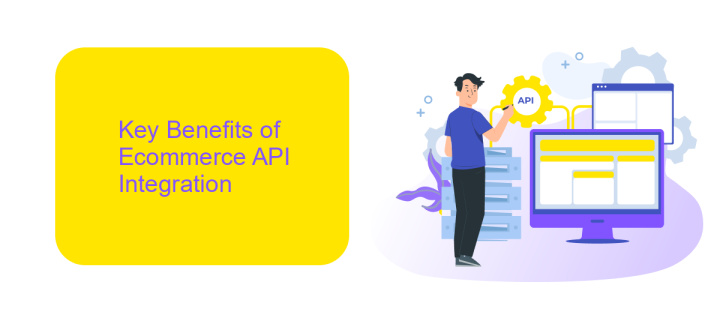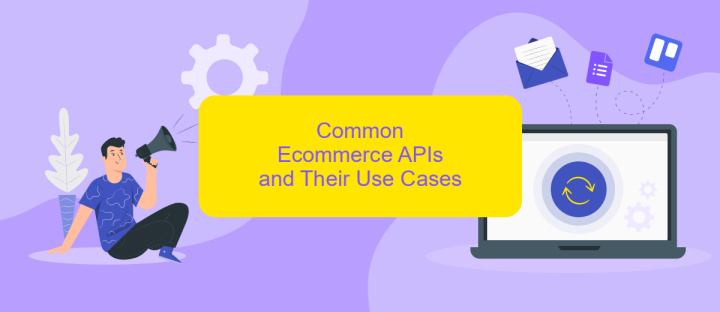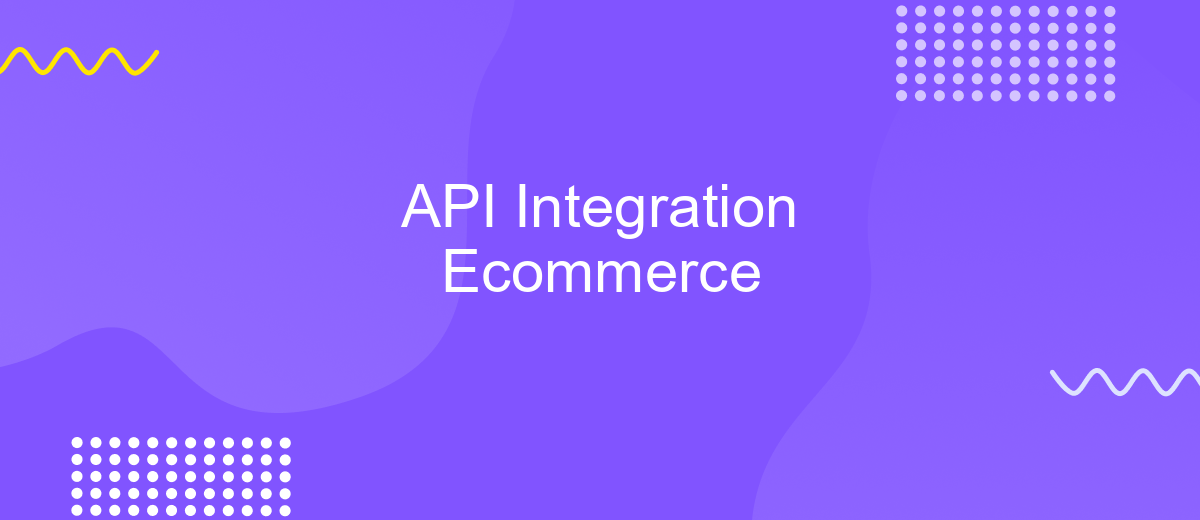API Integration Ecommerce
In today's fast-paced digital landscape, API integration has become a cornerstone for eCommerce success. By seamlessly connecting various software applications, businesses can enhance functionality, streamline operations, and improve customer experiences. From inventory management to payment processing, APIs enable eCommerce platforms to operate more efficiently and adapt to ever-evolving market demands. This article explores the vital role of API integration in driving eCommerce growth and innovation.
Understanding API Integration in Ecommerce
API integration in ecommerce plays a crucial role in streamlining and enhancing various business operations. By connecting different software systems, APIs allow for seamless data exchange and communication between platforms, enabling businesses to automate processes and improve efficiency. This integration helps in managing inventory, processing payments, and enhancing customer experience by providing real-time information and personalized services.
- Enables real-time data synchronization across platforms.
- Facilitates automated order processing and inventory management.
- Enhances customer experience with personalized services.
- Supports secure and efficient payment processing.
- Allows for scalable and flexible business operations.
By leveraging API integration, ecommerce businesses can stay competitive and responsive to market changes. It allows for the seamless addition of new functionalities and services, ensuring that businesses can adapt to evolving customer needs and technological advancements. Overall, API integration is a vital component for modern ecommerce operations, driving growth and innovation.
Key Benefits of Ecommerce API Integration

Ecommerce API integration offers significant advantages for businesses seeking to enhance their online platforms. One key benefit is the seamless connectivity it provides between different software applications, enabling real-time data exchange and improved operational efficiency. By integrating APIs, ecommerce platforms can automate routine tasks such as inventory management, order processing, and customer relationship management. This not only reduces manual errors but also frees up valuable time for businesses to focus on strategic growth initiatives.
Moreover, API integration allows ecommerce businesses to easily scale their operations and expand their capabilities by connecting with various third-party services. For instance, platforms like ApiX-Drive facilitate the integration process, allowing businesses to effortlessly connect with popular applications and services without extensive coding knowledge. This flexibility ensures that ecommerce companies can adapt to changing market demands and integrate new functionalities as needed, ultimately enhancing the customer experience and driving increased sales. Overall, ecommerce API integration is a crucial component for businesses aiming to streamline operations and remain competitive in the digital marketplace.
Common Ecommerce APIs and Their Use Cases

In the realm of ecommerce, APIs play a crucial role in streamlining operations and enhancing customer experiences. They enable seamless integration between different software systems, facilitating efficient data exchange and automation. Understanding common ecommerce APIs and their use cases can significantly benefit businesses looking to optimize their online platforms.
- Payment Gateway APIs: These APIs allow ecommerce platforms to process payments securely and efficiently. They support various payment methods, ensuring smooth transactions for customers worldwide.
- Shipping and Logistics APIs: These APIs provide real-time tracking information and automate shipping processes. They help businesses manage inventory and delivery schedules more effectively.
- Product Information Management (PIM) APIs: These APIs facilitate the organization and distribution of product data across multiple channels, ensuring consistency and accuracy.
- Customer Relationship Management (CRM) APIs: These APIs enable businesses to manage customer interactions and data, improving customer service and personalized marketing efforts.
By leveraging these common ecommerce APIs, businesses can enhance their operational efficiency and provide a better shopping experience for their customers. This integration not only saves time but also reduces errors, ultimately contributing to increased sales and customer satisfaction.
Best Practices for Successful API Integration

Integrating APIs into your ecommerce platform can significantly enhance functionality and streamline operations. However, to ensure a seamless integration, it's crucial to follow certain best practices. Begin by thoroughly understanding the API documentation. This will help you grasp the capabilities and limitations of the API, enabling you to make informed decisions during implementation.
Next, prioritize security by implementing authentication and encryption protocols. Protecting sensitive customer data is paramount, and a secure API integration can prevent potential data breaches. Additionally, consider scalability to accommodate future growth and increased traffic, ensuring your integration can handle higher loads without compromising performance.
- Test the API in a sandbox environment before going live to identify and resolve issues.
- Maintain clear and consistent communication with the API provider for support and updates.
- Document the integration process and any customizations for future reference and troubleshooting.
Finally, continuously monitor the API performance and update it as needed. Regularly reviewing logs and performance metrics will help you identify areas for improvement, ensuring your ecommerce platform remains efficient and reliable. By following these best practices, you can achieve a successful API integration that enhances your business operations.


Future Trends in Ecommerce API Integration
The future of ecommerce API integration is poised for significant evolution, driven by advancements in technology and the increasing demand for seamless digital experiences. As businesses strive to enhance customer engagement and operational efficiency, APIs will play a crucial role in connecting diverse systems and platforms. The trend towards microservices architecture is expected to accelerate, enabling more modular and scalable integration solutions. This shift will allow ecommerce businesses to quickly adapt to changing market demands and integrate new functionalities with ease.
Additionally, the rise of AI and machine learning in ecommerce will necessitate more sophisticated API integrations to harness data insights and automate processes. Tools like ApiX-Drive are set to become invaluable, offering user-friendly solutions for configuring and managing complex integrations without extensive coding knowledge. These platforms will empower businesses to streamline operations and focus on strategic growth. As security remains a top priority, future API integrations will also emphasize robust authentication and data protection measures to ensure safe and reliable transactions.
FAQ
What is an API integration in eCommerce?
How can API integration benefit my eCommerce business?
What are the common challenges in eCommerce API integration?
How can I simplify the process of integrating APIs for my eCommerce platform?
What should I consider when choosing an API integration solution for my eCommerce business?
Strive to take your business to the next level, achieve your goals faster and more efficiently? Apix-Drive is your reliable assistant for these tasks. An online service and application connector will help you automate key business processes and get rid of the routine. You and your employees will free up time for important core tasks. Try Apix-Drive features for free to see the effectiveness of the online connector for yourself.

